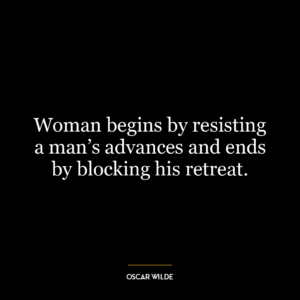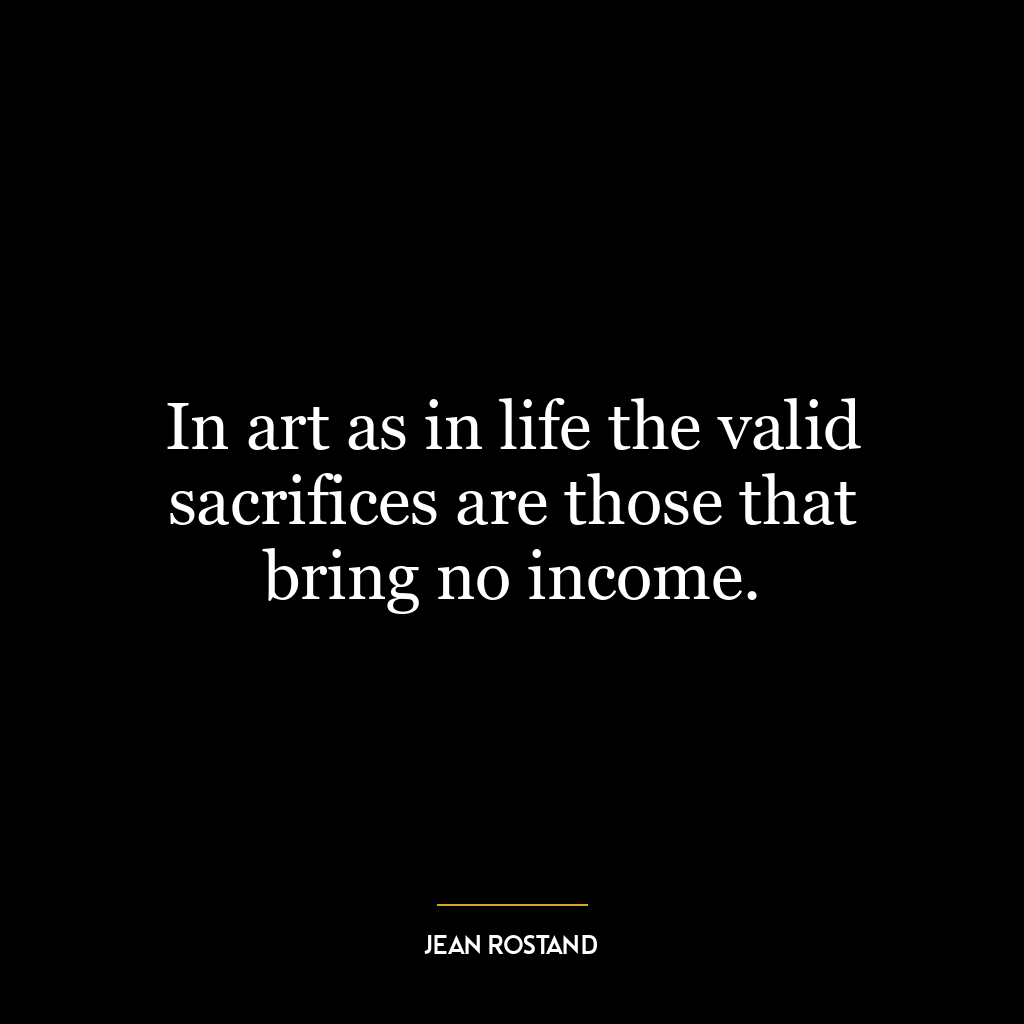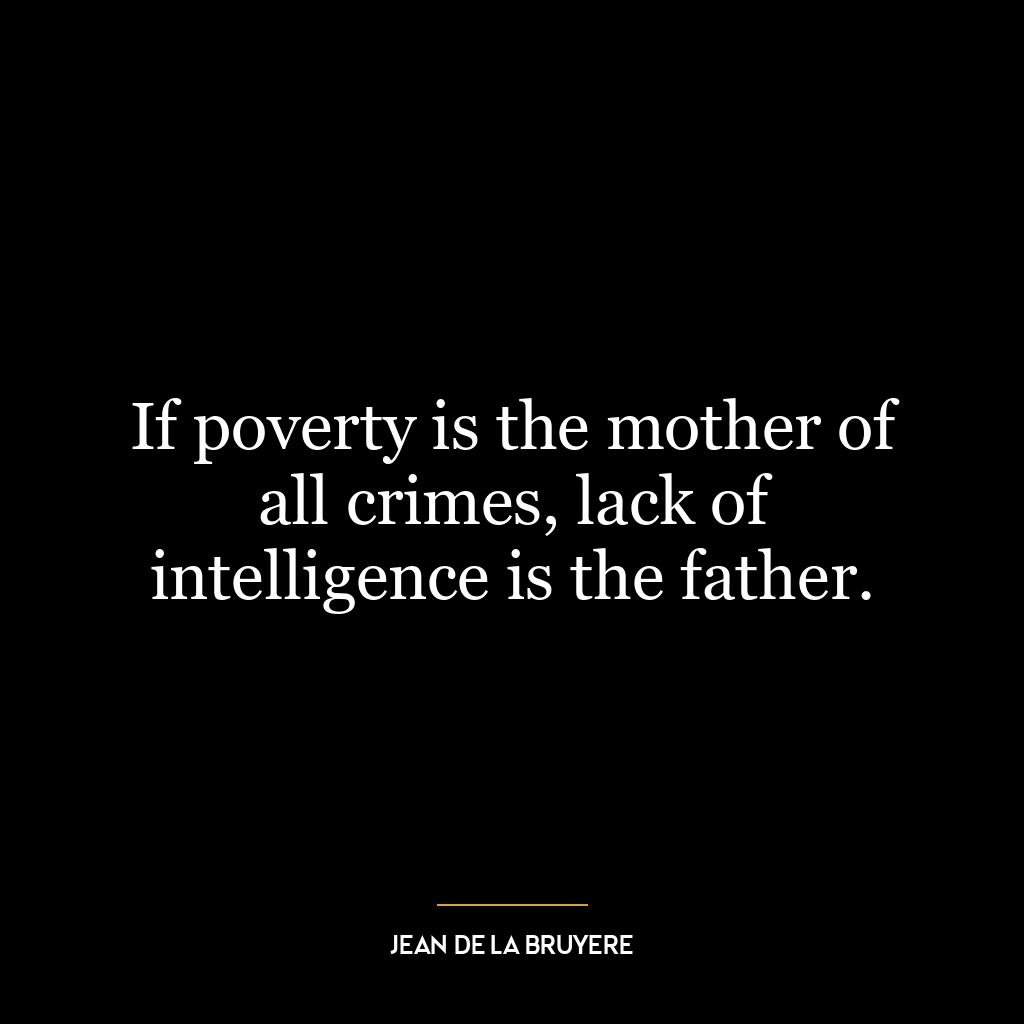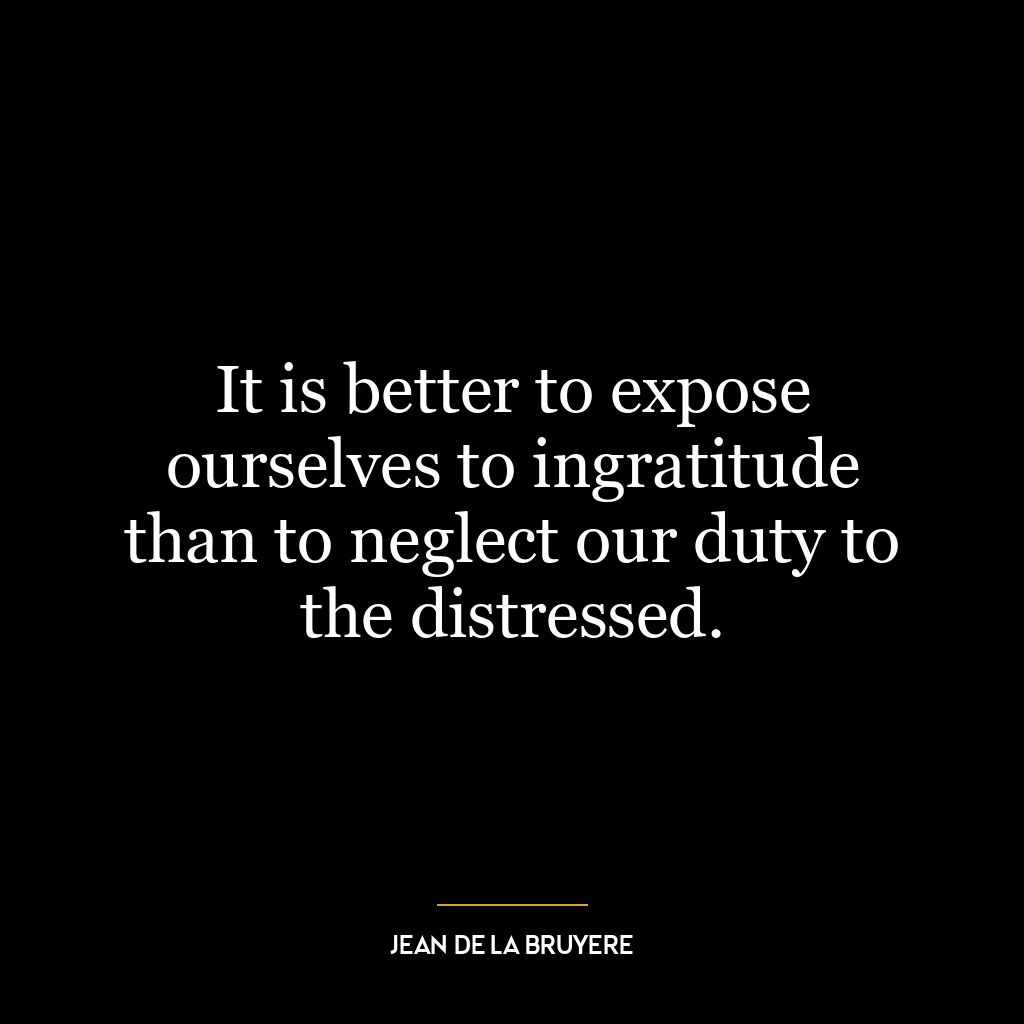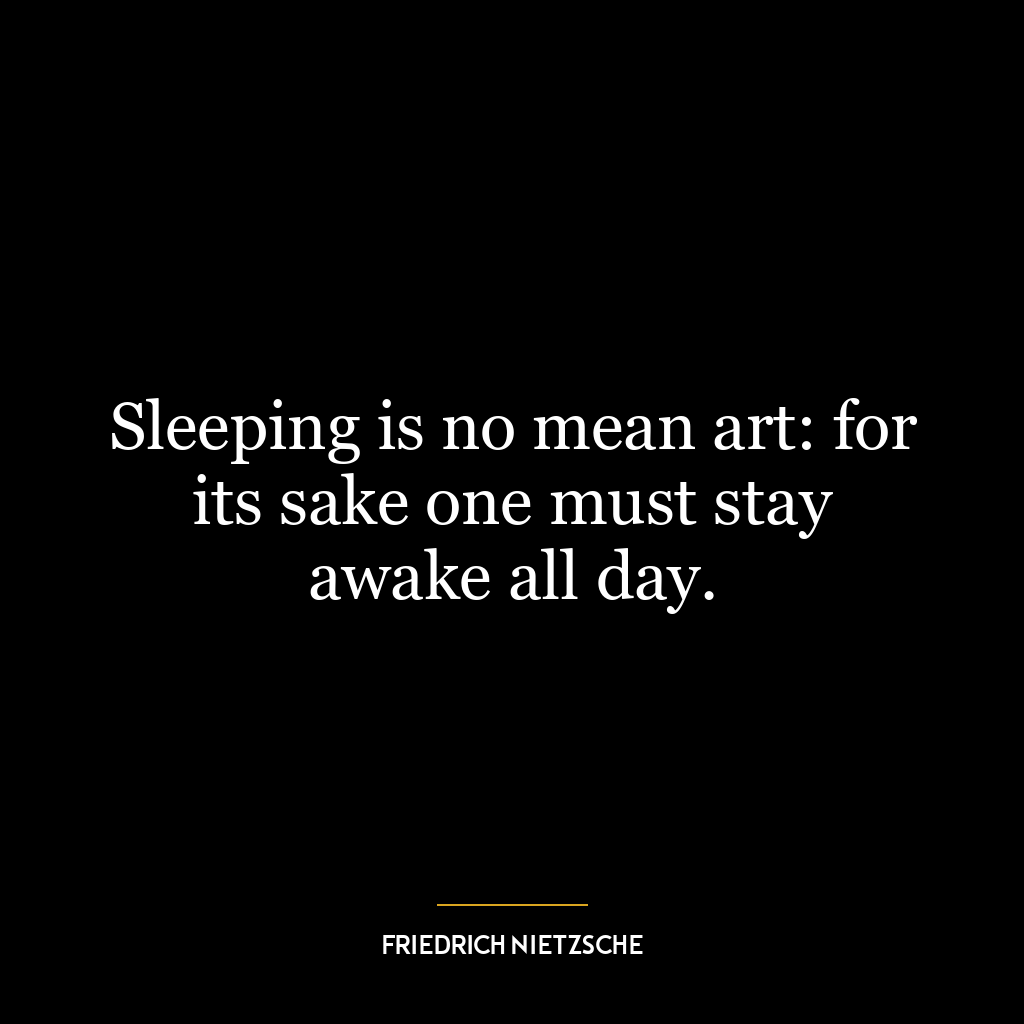The tragedy of the poor is that they can afford nothing but self denial.
This quote encapsulates the harsh reality of poverty: the inability to afford anything but the act of denying oneself the basic pleasures or necessities of life. It suggests that the poor are constantly forced to suppress their desires, needs, and aspirations because they lack the financial means to fulfill them. The tragedy lies not just in the lack of material possessions, but in the constant state of self-denial, the perpetual sacrifice, and the inability to experience life beyond mere survival.
In a deeper sense, this quote also highlights the social and psychological implications of poverty. It’s not just about being unable to buy things, but also about the loss of dignity, freedom, and opportunities for self-improvement and growth. In essence, poverty traps people in a cycle of self-denial, preventing them from realizing their full potential.
Applying this concept to today’s world, we can see that despite advancements in technology and wealth creation, poverty remains a pervasive issue. Many people still live in dire conditions, forced to deny themselves basic necessities like healthy food, quality education, and healthcare. This systemic poverty often leads to social exclusion, crime, and a host of other social problems.
In terms of personal development, this quote can serve as a stark reminder of the importance of financial independence and stability. It underscores the need to strive for economic security not just for materialistic purposes, but to have the freedom to pursue personal growth, explore interests, and lead a fulfilling life. It also encourages empathy and understanding towards those less fortunate, and may inspire efforts to alleviate poverty and its associated hardships.



